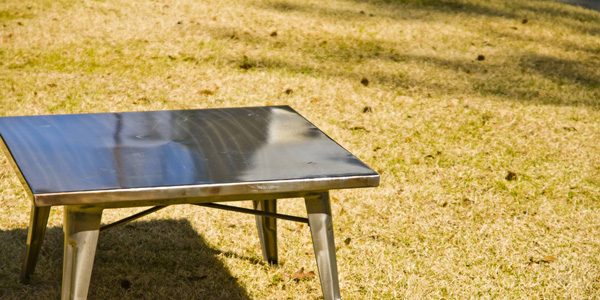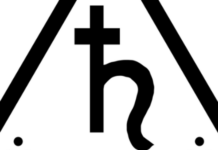 I stood before my unused sewing table, where I was to build my first ancestor altar. I thought of what I might put there: a photo of my birth parents, certainly, and two metal Peruvian figurines, a man and a woman, to honour my karmic roots to Peru. What else held meaning for my ancestors; what might make them feel at home? For my birth parents, two treasured old compasses that belonged to my father and a favourite hamsa necklace of my mother’s. For the Peruvian folk, an offering of corn meal and tobacco, and palo santo, a Peruvian wood incense. To symbolize the ancestral wisdom I wanted to access, two small plastic skulls; and to honour my shamanic path, pieces of wood from a tree struck by lightning on the property of one of my shaman-sisters (being struck by lightning three times is believed to be a call to that path).
I stood before my unused sewing table, where I was to build my first ancestor altar. I thought of what I might put there: a photo of my birth parents, certainly, and two metal Peruvian figurines, a man and a woman, to honour my karmic roots to Peru. What else held meaning for my ancestors; what might make them feel at home? For my birth parents, two treasured old compasses that belonged to my father and a favourite hamsa necklace of my mother’s. For the Peruvian folk, an offering of corn meal and tobacco, and palo santo, a Peruvian wood incense. To symbolize the ancestral wisdom I wanted to access, two small plastic skulls; and to honour my shamanic path, pieces of wood from a tree struck by lightning on the property of one of my shaman-sisters (being struck by lightning three times is believed to be a call to that path).
In shamanism you learn fairly quickly about the constant presence and influence of the ancestors, their legacies — both gifts and wounds — and why it behoves you to pay your respects and enlist their help. Yet no matter what path you’re on, a relationship with your ancestors can benefit you.
Building an ancestor altar in your home is a time-honoured way to connect with departed loved ones, both physical and karmic, known and unknown, and ask for their blessings. The altar is their home within yours; it is a place for them to stay and a place you’ll know where they are. You can give thanks here, while giving back ancestral influences that don’t serve you. It functions in a similar way to a cemetery tombstone, a locus for attention and remembrance, a place where you can talk with your ancestors and build or continue a connection from the comfort of your home.
The altar itself can be as elaborate or simple as you want, as big or as small. Use your imagination, and don’t be overly concerned with form. Intent is what counts. After using my sewing table, I moved my altar to a snack tray, and then the top of my bedroom dresser. Some say that the altar should be set up in an enclosed space, such as on a shelf in a cabinet that can be closed, so the spirits won’t roam around and cause mischief. I myself have never experienced this — or maybe I have and didn’t know it was them!
The altar can include anything meaningful to you or the ancestors: photos, figurines, jewellery, offerings, flowers, food or drink. You might want to refresh it seasonally to mark the passage of time, or to mark birthdays, anniversaries or other special dates. I once placed acorns and red and orange leaves on my altar to commemorate an autumn walk in the woods and a particularly meaningful conversation with an ancestor.
It’s important is keep your altar current; as you feel shifts in your energy see if items are calling to be removed or added, or if the ancestors are directing you to place or remove certain objects. For example, I had two Brigid’s crosses made during ritual last Imbolc on my altar until a few weeks ago. At that time I was struggling with healing a difficult and heartbreaking past-life issue that was holding me back. During the ritual I knelt before the fire and asked for help and guidance, and sealed that energy into the crosses. After six months, I’ve healed and feel my life revving up again; I’ve now removed the crosses from the altar, since that work feels complete.
Once the altar is set up, work with it regularly. The power of an ancestor altar (or any altar) consists in the interaction you have with it. It will build energy according to how much attention it receives. Interact once a day, or once or twice a week, but try to be consistent. As with all ritual objects, it’s up to you whether you let others touch your altar or interact with it. I feel it’s best not to allow this, so no one else’s energy gets on the objects. The exception is a family altar in which all members contribute to its construction and care.
If you feel squeamish acknowledging spirits in your home this way, realize that we have a societal, Hollywood-induced phobia against spirits of the dead, thinking they always mean us harm. I’ve found in my own experience and practice that nothing could be farther from the truth.
Our ancestors want to help us lead the best possible lives and keep us from making the mistakes they did, and they are eager to assist. Try setting up your own altar, and see what happens.







